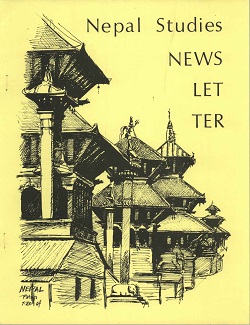Author Biography
Shubhra Gururani is Associate Professor of Social Anthropology at York University, Canada. Her research lies at the intersection of critical political ecology, feminist geography, and science and technology studies. In her work, through ethnography, she explores the everyday practices of gender, place, and nature as they co-constitute each other. She has conducted ethnographic research on the politics of conservation and social movements in the Kumaon Himalayas and her essays have appeared in the Journal of Peasant Studies, International Journal of Social Sciences, Gender, Place, and Culture. She recently co-edited a Special Issue of Conservation and Society and has been researching the politics of urban transformation with a focus on Gurgaon.
Abstract
By examining women’s active participation in a range of social movements over many decades in Uttarakhand Himalayas, the paper first explores what is it about this place that has produced such vibrant interventions from rural women and produced a gendered geography of resistance. It then focuses on the regional autonomy movement that shook the region in the nineties. Taking women’s participation seriously, the paper argues that the demand for a separate state and assertion of a regional identity even though was enmeshed in the messy electoral and reservation politics of caste, women’s large-scale participation and shifting support suggests that women protestors were critical in connecting the dots of their marginalization and helped broaden the scope of the movement by incorporating wide range of issues fueled not by any traditional values but by aspirations and political claims to modernity and regional identity. In moving away from stagnant and narrow reading of women’s participation in social movements, the paper argues that it is important to recognize women’s actions, like all actions, are not pre-constituted or fixed but they are contingent upon and guided by a range of impulses, sometimes contradictory and conservative, but nonetheless historically and spatially constituted.
Acknowledgements
I would like to profusely thank the women who openly and patiently responded to my inquiries and encouraged me to write about their struggle and their lives. My thanks also to Kim Berry, Uma Bhatt, Rebecca Klenk, Manisha Lal, and Shekhar Pathak for reading and commenting earlier drafts of the paper.
Creative Commons License

This work is licensed under a Creative Commons Attribution 4.0 License.
Recommended Citation
Gururani, Shubhra. 2014. Geographies that Make Resistance”: Remapping the Politics of Gender and Place in Uttarakhand, India. HIMALAYA 34(1).
Available at:
https://digitalcommons.macalester.edu/himalaya/vol34/iss1/12


